Find Your Path to Wellness at Our Trusted Local Pharmacy
Pharmacy is the vital health science that connects medical research directly to patient care. It is dedicated to the safe and effective use of medications, ensuring optimal therapeutic outcomes for all. This dynamic field empowers pharmacists as accessible medication experts and trusted community health advisors.
Understanding Different Types of Medication Dispensaries
When it comes to getting your prescriptions filled, you have more options than just the big chain pharmacy. The classic community pharmacy is your local spot, offering personalized service. Then there are mail-order pharmacies, which deliver right to your door and are great for long-term medications. For more specialized or compounded drugs, you might use a specialty pharmacy. And let’s not forget about online pharmacies, which provide incredible convenience but require careful vetting to ensure they are legitimate and accredited for safety.
Q: Are all online pharmacies safe?
A: Not always. It’s crucial to use ones that are VIPPS-accredited or require a valid prescription from your doctor to ensure you’re getting safe, genuine medication.
Community and Retail Locations
Understanding the different types of medication dispensaries helps you navigate where to get your prescriptions filled. While your local community pharmacy offers personalized service, mail-order pharmacy services deliver a 90-day supply right to your door, which is great for managing chronic conditions. You also have specialized options like hospital dispensaries for in-patient care and compounding pharmacies that create custom medications. Each type serves a unique purpose, ensuring you get the right care and convenience for your specific health needs.
Hospital and Clinical Dispensing Services
Understanding the different types of medication dispensaries is crucial for navigating your healthcare options effectively. Beyond the standard retail pharmacy, several specialized models exist. These include traditional chain and independent community pharmacies for everyday prescriptions, closed-door pharmacies that serve specific facilities like nursing homes, and sophisticated mail-order pharmacies designed for managing long-term chronic conditions. Each model offers distinct advantages in terms of accessibility, specialized services, and cost-efficiency. Choosing the right pharmacy provider ensures you receive not only your medication but also the appropriate level of clinical support and convenience tailored to your health needs.
Mail-Order and Online Prescription Services
Understanding the different types of medication dispensaries is crucial for informed healthcare decisions. While retail pharmacies offer convenience for immediate needs, specialized compounding pharmacies create custom medications for unique patient requirements. For those managing chronic conditions, long-term care and mail-order pharmacies provide enhanced efficiency and cost savings. This variety ensures you can find a pharmacy service model that perfectly aligns with your health journey, guaranteeing not only access but also the right support for your specific treatment plan.
The Role of a Pharmacist in Patient Care
Pharmacists are indispensable medication experts and accessible healthcare providers, playing a critical role in direct patient care. They are the final safety checkpoint, ensuring prescriptions are accurate and appropriate for a patient’s specific condition. Their deep knowledge of drug interactions and therapeutic outcomes allows them to counsel patients, manage chronic diseases, and administer vaccines.
By conducting comprehensive medication reviews, pharmacists proactively identify and resolve drug-related problems, preventing adverse events and hospitalizations.
This collaborative approach is essential for optimizing treatment regimens and achieving superior patient health results.
Medication Therapy Management
Beyond simply dispensing medications, the modern pharmacist is a vital patient care provider embedded in the healthcare team. Imagine a patient, newly diagnosed with diabetes, feeling overwhelmed. The pharmacist becomes their clinical guide, translating a complex regimen into an actionable plan. They conduct a comprehensive medication review, counsel on proper injection technique, and monitor for potential drug interactions. This critical intervention ensures medication adherence and optimizes therapeutic outcomes, solidifying the pharmacist’s role in chronic disease management and making them an accessible first point of contact for public health advice.
Administering Vaccinations and Health Screenings
Imagine receiving a new, complex prescription; the instructions are a blur of medical jargon. This is where the pharmacist steps in, transforming confusion into clarity. They are the medication therapy management experts, a vital and accessible bridge between your doctor’s orders and your daily life. Their role extends far beyond dispensing pills to include critical patient care activities: verifying drug interactions, providing personalized counseling on side effects, and ensuring you feel confident and safe managing your treatment at home.
Providing Critical Health Advice
A pharmacist’s role in patient care extends far beyond dispensing medications. They are medication experts who work directly with you and your doctors to ensure your treatment is safe and effective. This includes checking for dangerous drug interactions, providing clear instructions on how to take your medicines, and offering crucial advice on managing side effects. This direct collaboration is a cornerstone of integrated healthcare services, helping you achieve the best possible health outcomes and truly understand your therapy.
Navigating the Prescription Process
Navigating the prescription process begins with a consultation with a licensed healthcare provider who assesses your condition. If medication is deemed necessary, the provider issues a prescription, which is a legal directive to a pharmacist. You then present this at a pharmacy, where the pharmacist verifies the medication order for accuracy and potential interactions before dispensing the drug. Understanding your insurance coverage and potential co-pays is a critical part of this process. Finally, the pharmacist provides essential counseling on proper usage and side effects, ensuring safe and effective treatment. This entire procedure is governed by strict patient safety protocols.
How to Fill a New Prescription
Successfully navigating the prescription process requires proactive patient engagement. Always maintain an updated list of your current medications and known allergies for your doctor. Don’t hesitate to ask clarifying questions about your new medication’s purpose, dosage, and potential side effects before leaving the appointment. This direct communication ensures you understand your treatment plan, a cornerstone of effective medication management. Finally, confirm your pharmacy’s fulfillment process and explore generic alternatives or prescription discount cards to manage costs effectively.
Understanding Generic vs. Brand-Name Drugs
Sarah stared at the unfamiliar prescription slip, feeling overwhelmed. Her journey through the prescription process began with a crucial conversation with her pharmacist, who deciphered the doctor’s instructions and explained the proper medication management required for her recovery. She learned to navigate insurance formularies and discovered the importance of checking for generic alternatives to manage costs effectively. This careful approach ensured she could follow her treatment plan with confidence and clarity.
Managing Refills and Transfers
Navigating the prescription process can feel complex, but understanding the key steps makes it manageable. It typically starts with a consultation with your healthcare provider, who assesses your needs and writes a prescription. You then take this to a pharmacy, where a pharmacist reviews it for safety and dispenses your medication. This entire journey from doctor’s order to pharmacy pickup is a core part of effective medication management. Always ask questions if you’re unsure about your dosage instructions or potential side effects to ensure you use your medicine safely.
Over-the-Counter (OTC) Products and Self-Care
Over-the-counter (OTC) products are a cornerstone of modern self-care, empowering individuals to manage minor health concerns independently. These medications, available without a prescription, treat a wide range of common ailments from allergies and pain to heartburn and colds. This accessibility allows for timely symptom relief and promotes proactive health management. Responsible self-care involves carefully reading labels and understanding proper dosage to ensure safe and effective use. While convenient, it is always advisable to consult a healthcare professional if symptoms persist or worsen. The widespread availability of these non-prescription medications supports public health by reducing the burden on medical services for minor issues.
Choosing the Right OTC Medication
Over-the-counter (OTC) products are a cornerstone of responsible self-care, empowering individuals to manage minor health concerns independently. These medications, available without a prescription, provide accessible and cost-effective first-line treatment for conditions like allergies, pain, and heartburn. A successful self-care management strategy involves carefully reading drug facts labels to understand active ingredients, correct dosage, and potential interactions. It is crucial to consult a pharmacist when selecting a product, especially for those with chronic conditions or taking other medications, to ensure safe and effective use.
The Importance of Reading Drug Facts Labels
Over-the-Counter (OTC) products are a cornerstone of modern self-care, empowering individuals to proactively manage minor health concerns. From allergy relief to pain management, these accessible medications provide a first line of defense, promoting personal well-being and reducing the strain on healthcare systems. This approach to consumer healthcare empowerment allows for swift action and greater control over one’s health journey. This proactive stance turns everyday people into active participants in their own wellness. By responsibly utilizing OTC options for common ailments, individuals can effectively maintain their daily health and vitality.
Consulting Your Pharmacist for OTC Recommendations
Navigating a minor health concern often begins at the local pharmacy, where accessible OTC medications empower individuals to take charge of their well-being. This practice of self-care allows people to independently manage common conditions like headaches, seasonal allergies, or heartburn. By carefully reading labels and understanding proper usage, consumers can effectively find relief for everyday ailments, fostering a proactive approach to personal health. This daily ritual of self-treatment is a cornerstone of modern healthcare, enabling people to resolve minor issues quickly and efficiently.
Specialized Services and Clinical Roles
Within the intricate ecosystem of healthcare, specialized services represent distinct realms of expertise, from cardiology to oncology, each with its own dedicated teams and advanced technologies. The clinical roles within these units are the lifeblood of their operation; highly specialized practitioners, including clinical nurse specialists and physician assistants, bring a depth of knowledge that transforms complex cases into manageable care plans. It is here, in the quiet focus of a specialist’s consultation, that a patient’s journey often finds its most hopeful direction. Their collaborative work ensures that every patient-centered intervention is not just a procedure, but a carefully crafted step toward healing.
Compounding Custom Medications
Within the intricate ecosystem of healthcare, specialized services represent the advanced, targeted interventions provided by expert clinicians. These services, from cardiology to neurology, are delivered by professionals like nurse practitioners and physician assistants who operate with a high degree of autonomy. This model of **collaborative patient care** allows for a comprehensive approach to complex conditions. It is here, in the quiet consultation rooms and bustling hospital wards, that clinical expertise truly transforms a patient’s journey. By focusing their skills, these dedicated providers ensure that every individual receives the precise, expert attention their unique health situation demands.
Managing Chronic Diseases like Diabetes and Hypertension
Within the intricate ecosystem of healthcare, specialized services represent the deep expertise required for complex conditions, from cardiology to neurology. These services are powered by dedicated clinical roles, where nurse practitioners, physician assistants, and clinical specialists collaborate to deliver targeted interventions. It is a symphony of skill, where each professional plays a vital part in the patient’s journey. This collaborative model is fundamental to delivering high-quality patient care, ensuring that every individual receives the precise, expert attention their health situation demands.
Mental Health and Medication Adherence Support
Behind every patient’s journey lies a network of specialized services and clinical roles, each a vital piece in the healthcare mosaic. From the diagnostic precision of a radiologist interpreting a scan to the compassionate care of an oncology nurse, these experts form a cohesive unit. The respiratory therapist, the physical therapist, and the clinical social worker all contribute their unique skills, ensuring comprehensive care that addresses the whole person, not just the illness. This orchestration of talent is the foundation of modern patient care, a symphony of expertise working in unison toward healing.
Healthcare professional collaboration is essential for managing complex conditions. A patient with a heart condition, for instance, doesn’t just see a cardiologist. Their care team might include a cardiac nurse for daily monitoring, a dietitian for nutritional planning, and a pharmacist for medication management, all communicating seamlessly to optimize health outcomes.
**Q&A:**
* **What is the difference between a clinical role and a specialized service?**
A clinical role refers to a specific job, like a nurse or surgeon. A specialized service is a department or program, like cardiology or radiology, where these roles collaborate to deliver focused care.
Safety and Regulatory Compliance
Safety and Regulatory Compliance is a critical framework ensuring that organizations adhere to established laws, guidelines, and specifications relevant to their business. This involves systematic risk assessments, the implementation of protective measures, and rigorous documentation to prevent accidents, injuries, and environmental damage. A robust compliance management system is essential for navigating complex legal landscapes, mitigating financial and reputational risks, and, most importantly, safeguarding employee and public welfare. It is a continuous process of monitoring and adapting to evolving standards.
Q: What is the primary goal of regulatory compliance?
A: The primary goal is to ensure that an organization’s operations and products meet all required legal and industry standards, thereby avoiding legal penalties and ensuring safe practices.
Ensuring Accurate Dosage and Dispensing
Navigating the complex landscape of workplace safety protocols is fundamental to operational excellence. It’s a dynamic, proactive commitment that extends beyond mere rule-following to foster a culture of vigilance and continuous improvement. By rigorously adhering to standards set by bodies like OSHA, organizations not only protect their most valuable asset—their people—but also build a resilient foundation for sustainable growth and brand trust. This strategic approach mitigates risk and transforms compliance from a legal obligation into a competitive advantage.
Preventing Dangerous Drug Interactions
Navigating the complex world of safety and regulatory compliance is a foundational business requirement. It’s the unseen framework that ensures operational integrity, shielding both employees and the public from harm while protecting the company’s reputation. This commitment to a robust compliance management system is not merely about avoiding fines; it’s about building a culture of trust and responsibility, where every procedure and policy is a promise of security. Ultimately, this proactive approach transforms legal obligations into a competitive advantage.
**Q&A**
**Q:** What is the primary goal of regulatory compliance?
**A:** Its primary goal is to ensure that a company’s operations and products adhere to established laws, standards, and ethical practices, thereby minimizing risk and promoting safety.
Controlled Substance Regulations and Security
Safety and regulatory compliance is a foundational business discipline ensuring that an organization’s operations and products adhere to established safety standards and legal requirements. This framework is designed to protect employees, consumers, and the environment from potential hazards. Proactive adherence to these protocols helps mitigate risks, prevent accidents, and avoid significant legal penalties. A robust regulatory compliance framework is not merely about avoiding fines; it builds stakeholder trust and reinforces a company’s reputation for responsibility and ethical operation in a complex global marketplace.
Financial Aspects and Insurance
The financial landscape of healthcare is a complex tapestry woven with threads of risk and responsibility. Navigating this system requires a solid understanding of personal budgeting for out-of-pocket costs, which exist alongside the crucial safety net of health insurance coverage. It was a lesson the Miller family learned the hard way after an unexpected hospital stay. Policies act as a financial shield, with premiums, deductibles, and copays representing a shared cost structure designed to make essential care accessible. Ultimately, proactive financial planning and a clear grasp of one’s insurance policy are the most valuable assets for ensuring both physical and fiscal health.
Understanding Prescription Drug Coverage
Navigating the financial aspects of healthcare can be daunting, but having the right insurance is a crucial part of your financial wellness. It’s not just about paying monthly premiums; it’s about understanding your deductible, copays, and out-of-pocket maximum to avoid surprise bills. Think of it as a partnership where you manage predictable costs, and your plan handles the big, unexpected ones. This approach is fundamental for effective personal finance management and ensures you can access the care you need without financial stress.
Saving Money with Discount Cards and Coupons
Navigating the financial aspects and insurance landscape is a cornerstone of sound wealth management. A robust financial plan integrates strategic insurance coverage to protect assets and mitigate unforeseen liabilities. This proactive approach safeguards your financial future against significant losses, from medical emergencies to property damage. Understanding your risk management options ensures that your hard-earned capital is preserved, allowing for sustained growth and stability. Ultimately, this comprehensive strategy is essential for achieving long-term financial security and peace of mind.
Navigating Prior Authorizations
Navigating the financial aspects and insurance is fundamental to achieving robust financial wellness. Proactive management of these areas protects assets and ensures long-term stability against unforeseen events. A well-structured insurance portfolio, including health, life, and property coverage, acts as a critical safety net. A comprehensive financial plan is incomplete without addressing potential risks. Understanding key insurance terms empowers individuals to make informed decisions, securing their financial future and providing invaluable peace of mind for themselves and their families.
The Future of Medication Dispensing
The future of medication dispensing is shifting from the pharmacy counter to your pocket and doorstep. We’re moving towards a world of personalized medication management, where smart, https://www.amazon.ca/Live-5AM-Magnesium-L-Threonate-Gluten-Free/dp/B0CFT2SQCB automated systems handle the refills for you. Imagine a smart pill bottle that texts you when it’s time for a dose or a home dispenser that sorts your weekly pills with perfect accuracy.
This isn’t just about convenience; it’s a massive leap for patient safety, drastically reducing human error in dosage.
With the integration of AI and telehealth, your care team can monitor adherence in real-time, making your treatment more effective. The era of waiting in line for prescriptions is fading, replaced by seamless, intelligent systems that put your health first.
Embracing Telehealth and Digital Health Tools
The future of medication dispensing is pivoting towards intelligent, patient-centric systems that enhance safety and adherence. **Automated medication dispensing systems** will evolve beyond pharmacy counters into smart home hubs and centralized community kiosks, using AI to manage complex regimens and provide real-time data to clinicians. This shift promises a future where technology handles the logistics, allowing patients to focus on their well-being. Key innovations include personalized packaging, biometric authentication for controlled substances, and IoT-enabled devices that automatically alert a caregiver if a dose is missed, creating a seamless and secure healthcare ecosystem.
Advances in Personalized Medicine
The future of medication dispensing is evolving from a simple transaction into a seamless, intelligent health experience. Imagine smart pharmacies where AI-driven systems manage your prescriptions, while automated dispensing kiosks offer 24/7 access. This shift towards **automated medication dispensing systems** promises a world where adherence is effortless, packaging is personalized, and your pharmacist is freed for complex consultations. It’s a narrative of technology creating a safer, more connected healthcare journey for everyone.
The Growing Role of Automation in Dispensing
The future of medication dispensing is shifting towards automated systems that enhance patient safety and convenience. Imagine smart pill bottles that glow when it’s time for your dose or **advanced pharmacy automation** seamlessly managing refills. These technologies, including centralized hubs and in-home dispensers, reduce human error and free up pharmacists for more personalized patient care. This evolution promises a more connected and efficient healthcare experience for everyone.

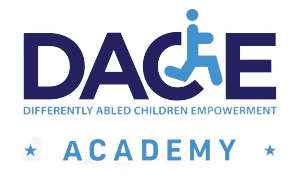
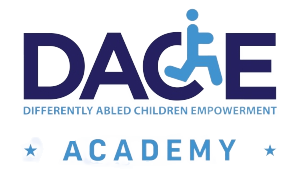
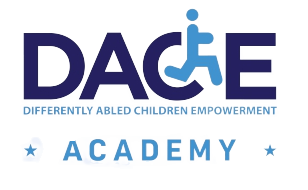
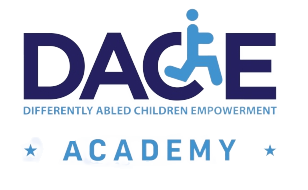
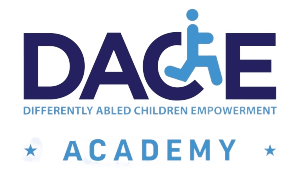
No Comments